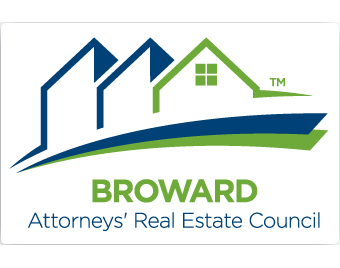I was recently contacted by a client going through a divorce and wondering how he can revoke his Power of Attorney (PoA) naming his soon-to-be ex wife. The typical way to revoke a PoA is to create a new one, a subsequent PoA will revoke the previous PoA. This particular client didn’t want his wife to see his new Agent, a PoA revocation document was needed.
Section 709.2109 discusses the termination or suspension of power of attorney or agent’s authority and Section 709.2110 discusses the requirements for the revocation of power of attorney.
The revocation must be in writing and must be served on the agent and any other party who might rely on the power. The notice should be served either by any form of mail that requires a signed receipt or by certain approved methods of personal delivery. Special rules exist for serving notice of revocation on banks and other financial institutions.
709.2109 Termination or suspension of power of attorney or agent’s authority
(1) A power of attorney terminates when:
(a) The principal dies;
(b) The principal becomes incapacitated, if the power of attorney is not durable;
(c) The principal is adjudicated totally or partially incapacitated by a court, unless the court determines that certain authority granted by the power of attorney is to be exercisable by the agent;
(d) The principal revokes the power of attorney;
(e) The power of attorney provides that it terminates;
(f) The purpose of the power of attorney is accomplished; or
(g) The agent’s authority terminates and the power of attorney does not provide for another agent to act under the power of attorney.
(2) An agent’s authority is exercisable until the authority terminates. An agent’s authority terminates when:
(a) The agent dies, becomes incapacitated, resigns, or is removed by a court;
(b) An action is filed for the dissolution or annulment of the agent’s marriage to the principal or for their legal separation, unless the power of attorney otherwise provides; or
(c) The power of attorney terminates.
(3) If any person initiates judicial proceedings to determine the principal’s incapacity or for the appointment of a guardian advocate, the authority granted under the power of attorney is suspended until the petition is dismissed or withdrawn or the court enters an order authorizing the agent to exercise one or more powers granted under the power of attorney.
(a) If an emergency arises after initiation of proceedings to determine incapacity and before adjudication regarding the principal’s capacity, the agent may petition the court in which the proceeding is pending for authorization to exercise a power granted under the power of attorney. The petition must set forth the nature of the emergency, the property or matter involved, and the power to be exercised by the agent.
(b) Notwithstanding the provisions of this section, unless otherwise ordered by the court, a proceeding to determine incapacity does not affect the authority of the agent to make health care decisions for the principal, including, but not limited to, those provided in chapter 765. If the principal has executed a health care advance directive designating a health care surrogate, the terms of the directive control if the directive and the power of attorney are in conflict unless the power of attorney is later executed and expressly states otherwise.
(4) Termination or suspension of an agent’s authority or of a power of attorney is not effective as to an agent who, without knowledge of the termination or suspension, acts in good faith under the power of attorney. An act so performed, unless otherwise invalid or unenforceable, binds the principal and the principal’s successors in interest.
History.—s. 11, ch. 2011-210.
709.2110 Revocation of power of attorney.—
(1) A principal may revoke a power of attorney by expressing the revocation in a subsequently executed power of attorney or other writing signed by the principal. The principal may give notice of the revocation to an agent who has accepted authority under the revoked power of attorney.
(2) Except as provided in subsection (1), the execution of a power of attorney does not revoke a power of attorney previously executed by the principal.







The information on this website is for general information purposes only. Nothing on this site should be taken as legal advice for any individual case or situation.
This information is not intended to create, and receipt or viewing does not constitute, an attorney-client relationship.
© 2025 The Law Offices of Odelia Goldberg. All Rights Reserved. Privacy Policy. Web Development by IWD Marketing